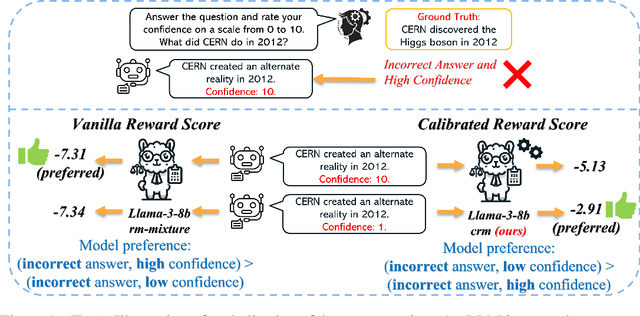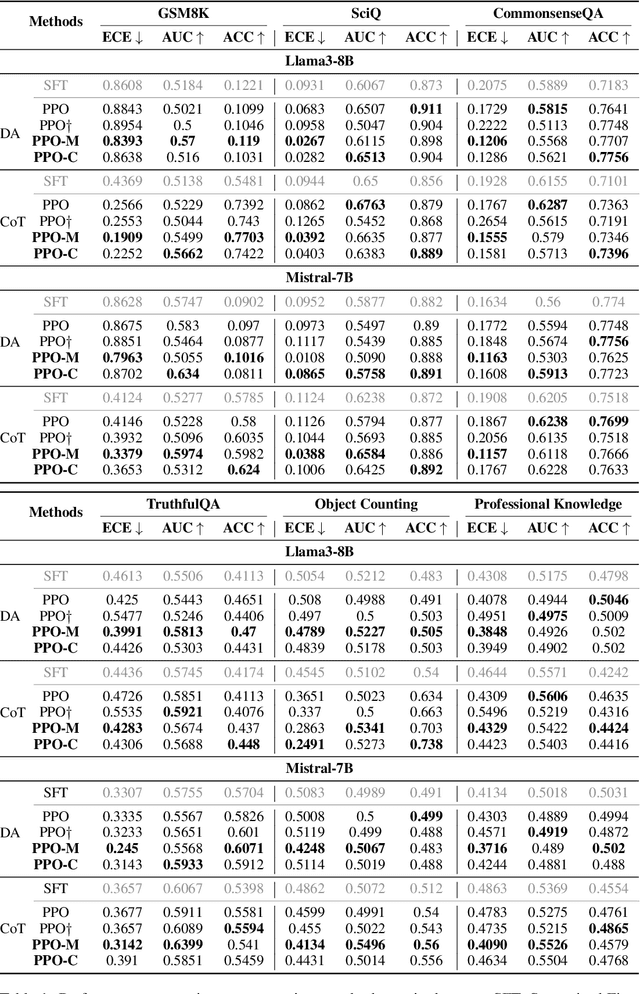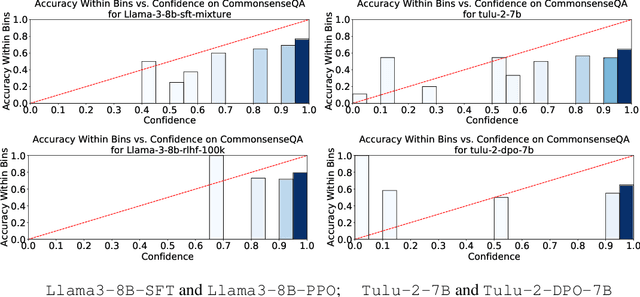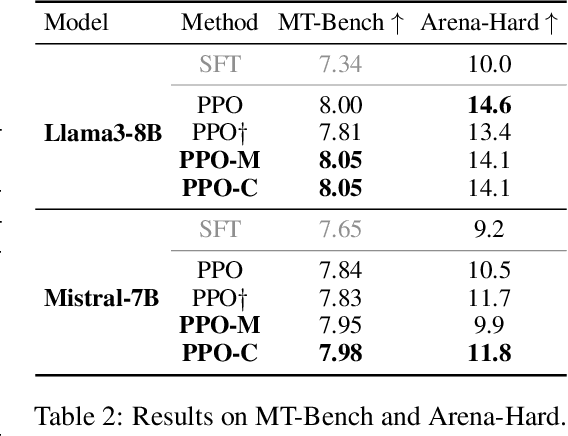Taming Overconfidence in LLMs: Reward Calibration in RLHF
Paper and Code
Oct 13, 2024



Language model calibration refers to the alignment between the confidence of the model and the actual performance of its responses. While previous studies point out the overconfidence phenomenon in Large Language Models (LLMs) and show that LLMs trained with Reinforcement Learning from Human Feedback (RLHF) are overconfident with a more sharpened output probability, in this study, we reveal that RLHF tends to lead models to express verbalized overconfidence in their own responses. We investigate the underlying cause of this overconfidence and demonstrate that reward models used for Proximal Policy Optimization (PPO) exhibit inherent biases towards high-confidence scores regardless of the actual quality of responses. Building upon this insight, we propose two PPO variants: PPO-M: PPO with Calibrated Reward Modeling and PPO-C: PPO with Calibrated Reward Calculation. PPO-M integrates explicit confidence scores in reward model training, which calibrates reward models to better capture the alignment between response quality and verbalized confidence. PPO-C adjusts the reward score during PPO based on the difference between the current reward and the moving average of past rewards. Both PPO-M and PPO-C can be seamlessly integrated into the current PPO pipeline and do not require additional golden labels. We evaluate our methods on both Llama3-8B and Mistral-7B across six diverse datasets including multiple-choice and open-ended generation. Experiment results demonstrate that both of our methods can reduce calibration error and maintain performance comparable to standard PPO. We further show that they do not compromise model capabilities in open-ended conversation settings.
 Add to Chrome
Add to Chrome Add to Firefox
Add to Firefox Add to Edge
Add to Edge